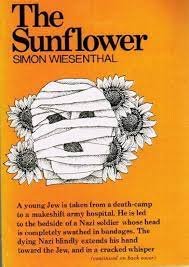Jazzy1
Got A Cracker?
- Location
- Adirondack Region NY
What would you say is the most important lesson you have learned in life?
While not sure it is my most important 'lesson', i come at this from the other side---Believe that the good you do today will come back to you down the road. Even if this rings untrue, I still think it's the right mindset to have...to live your life by.
Much more than most people realize. i've been lucky to learn a few times how something i said or did had been useful, beneficial for someone else. Usually long after i did/said whatever. That was enough to continue with my usual habits.Whether we realize it or not, we serve as an example to those around us through our words and actions.
Never ever lie in court. You will be called out every time.What would you say is the most important lesson you have learned in life?
How forgiveness cleans up so much anger, hurt and opens doors you can't get open.

For what it's worth, something in my life that happened 40 years ago, left an indelible mark, that to this day will often change my mood. Sharing it might be cathartic but that sharing might just as easily distress others, so I keep it to myself. That big stick is not exclusive.Sometimes I think no matter how often I get beaten over the head with the obvious big stick..I just never learn!
The trouble is..I trust people too easily.. and it never fails to sideswipe me...
